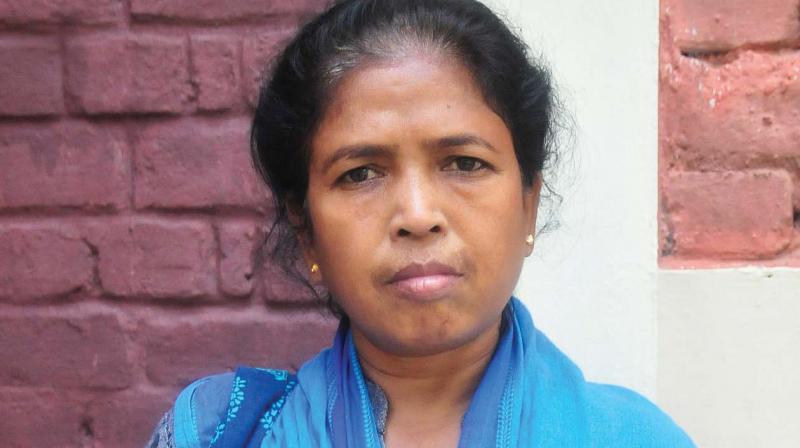Sober voice bares pain & futility of Chattisgargh's Maoist' hunt
Soni Sori was given electric shock, tortured with stones, and stripped by police after branded Maoist.

THIRUVANANTHAPURAM: The simple ‘normal’ life that Soni Sori had dreamt of changed some time in 2006. She was working as a Hindi teacher when the place started experiencing the presence of Maoists. On her way back from the school, Soni used to find Adivasi youths beaten up by the police. Since she knew Hindi and an Adivasi herself, she used to intervene, ask the police why they were beaten up. “They are not Maoists, they are poor villagers, farmers,” she told them. This did not go well. Neither did it in work in her favour that she brought 50 children who were orphaned during the Salwa Judum movement in Chattisgargh to the school, to teach. She was branded a Maoist and put in jail for two-and-a-half years. She was tortured in the police station. But all of that made her stronger, a different woman from the simple schoolteacher who just wanted to give a good life to her children.
On Saturday, she spoke of her life and atrocities that happen in Bastar and Chattisgarh at a session at the Achutha Menon Foundation in Thiruvananthapuram. So that people knew how they lived, what they went through, so that someone would write about it and do something. “Through this seminar I wanted to convey how the forces and the Chattisgarh government were doing injustice to us, tribal people in the state. I think this is also part of my struggle,” says the teacher who is now a social worker, an activist that everyone knew.
“When I was in jail I was fighting for myself and the co-prisoners. I began the fight against the atrocities against us in the prison. After coming out of prison I was not fighting for myself but for my people. Till yesterday the women who were raped, sexually exploited and assaulted were not able to speak up. They were terrified and mostly confined to their houses in the forests even when forces used to go there and rape them. Today women are coming out and saying openly that they have been raped. It is a good sign that at least people are mustering courage to speak out.”
Even with all the force that’s trying to pull them back, young people are joining the struggle, she says. “Those who were afraid till yesterday are now fighting fear, terror and Adivasis are continuing their struggle. We will not give our jal, jungle and jameen (water, forests and land). We will not give it for mining,” Soni says. She became this woman we listen to now, after going through a lot. In police station, she says, she was given electric shock, tortured with stones, and stripped. Later she faced acid attack. She saw other women go through similar experiences. “I experienced their pain and mine, combined. It was then I decided to fight this battle. I decided to tell the nation what the government is doing to Adivasis.”
The different governments that came to power didn’t come to their aid. “When the Congress government was in power there was the Salwa Judum movement during which many Adivasi brothers fled their villages, homes. Houses were set on fire, women were raped, young people were liquidated and many were finished off in jails. Now the BJP government is in power. And such incidents are on the rise. The Chattisgarh government says it has solved Maoist problem and Maoists have been finished. They say this throughout the country and in the media. But nothing of this sort is happening. The BJP government in Chattisgarh today is also killing Adivasis. Then they brand them as Maoists. But Maoism is not declining. The more the exploitation, the more the increase in numbers of Maoists. Because the Adivasis are always at the receiving end. They are sent to jails, beaten up in houses, when they go to forests or market, and when they go out to buy essential commodities, the police force beats them up badly. Under these circumstances where will they go?
“We want to tell the government to stop atrocities against Adivasis. Because the more you torture them in the name of Maoism or brand them Maoists, the problem of Naxalism will grow even more.” People ask her about Aam Aadmi party, but she’d say she is a social worker. “When Prashant Bhushan quit AAP I asked what I should do now. He told me that you never chose to attain power or to be in power. You chose to struggle for the Adivasis and fight for the people of Bastar. You continue your fight.”

